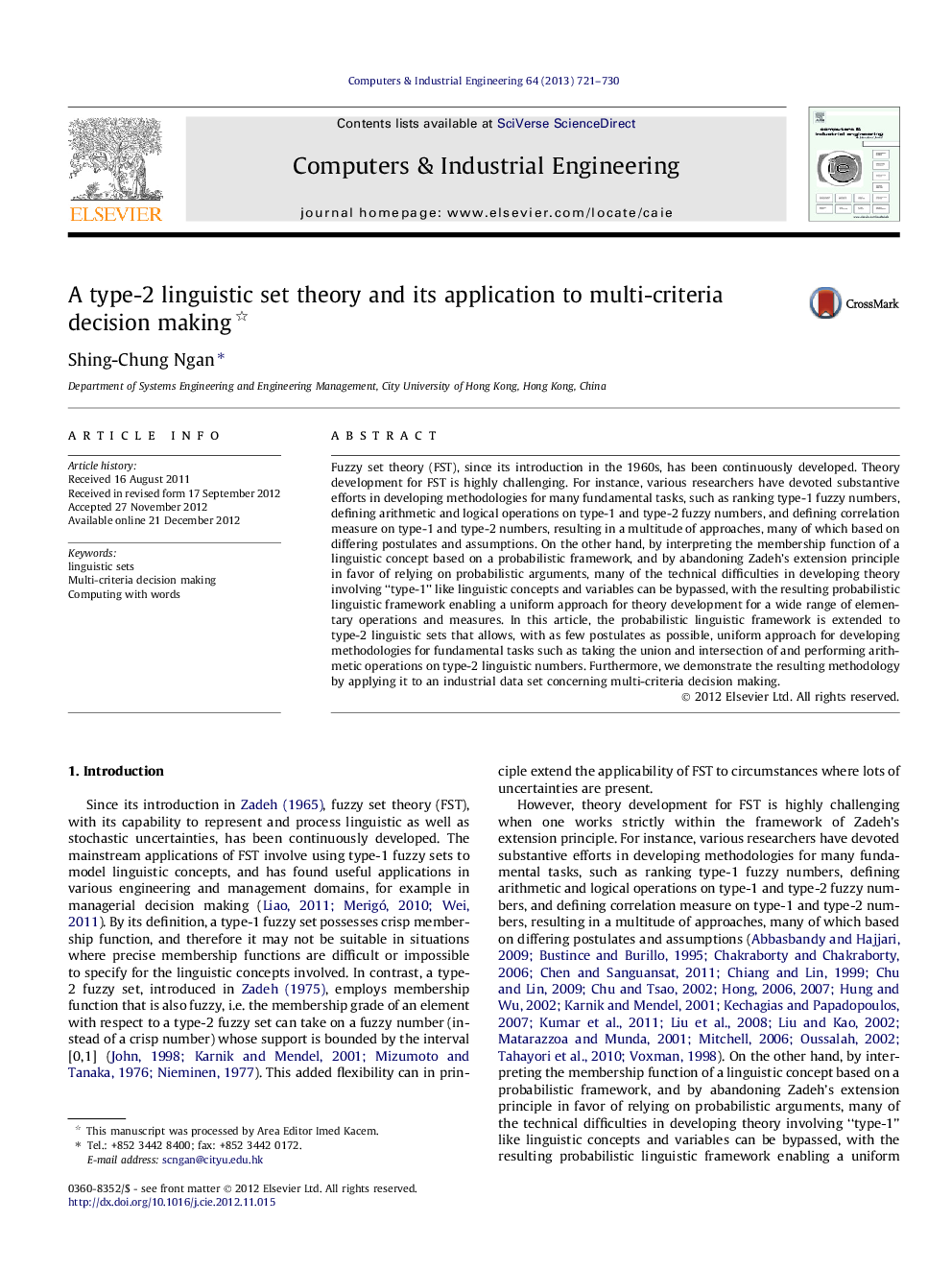| Article ID | Journal | Published Year | Pages | File Type |
|---|---|---|---|---|
| 1134140 | Computers & Industrial Engineering | 2013 | 10 Pages |
Fuzzy set theory (FST), since its introduction in the 1960s, has been continuously developed. Theory development for FST is highly challenging. For instance, various researchers have devoted substantive efforts in developing methodologies for many fundamental tasks, such as ranking type-1 fuzzy numbers, defining arithmetic and logical operations on type-1 and type-2 fuzzy numbers, and defining correlation measure on type-1 and type-2 numbers, resulting in a multitude of approaches, many of which based on differing postulates and assumptions. On the other hand, by interpreting the membership function of a linguistic concept based on a probabilistic framework, and by abandoning Zadeh’s extension principle in favor of relying on probabilistic arguments, many of the technical difficulties in developing theory involving “type-1” like linguistic concepts and variables can be bypassed, with the resulting probabilistic linguistic framework enabling a uniform approach for theory development for a wide range of elementary operations and measures. In this article, the probabilistic linguistic framework is extended to type-2 linguistic sets that allows, with as few postulates as possible, uniform approach for developing methodologies for fundamental tasks such as taking the union and intersection of and performing arithmetic operations on type-2 linguistic numbers. Furthermore, we demonstrate the resulting methodology by applying it to an industrial data set concerning multi-criteria decision making.
► Previously, a probabilistic linguistic framework has been used to successfully build a theory for type-1 linguistic sets. ► We now extend the framework to develop a theory of type-2 linguistic sets. ► The presented method enables a uniform approach for developing operations and measures on type-2 linguistic sets. ► We demonstrate the application of the method on an industrial data set involving multi-criteria decision making.
